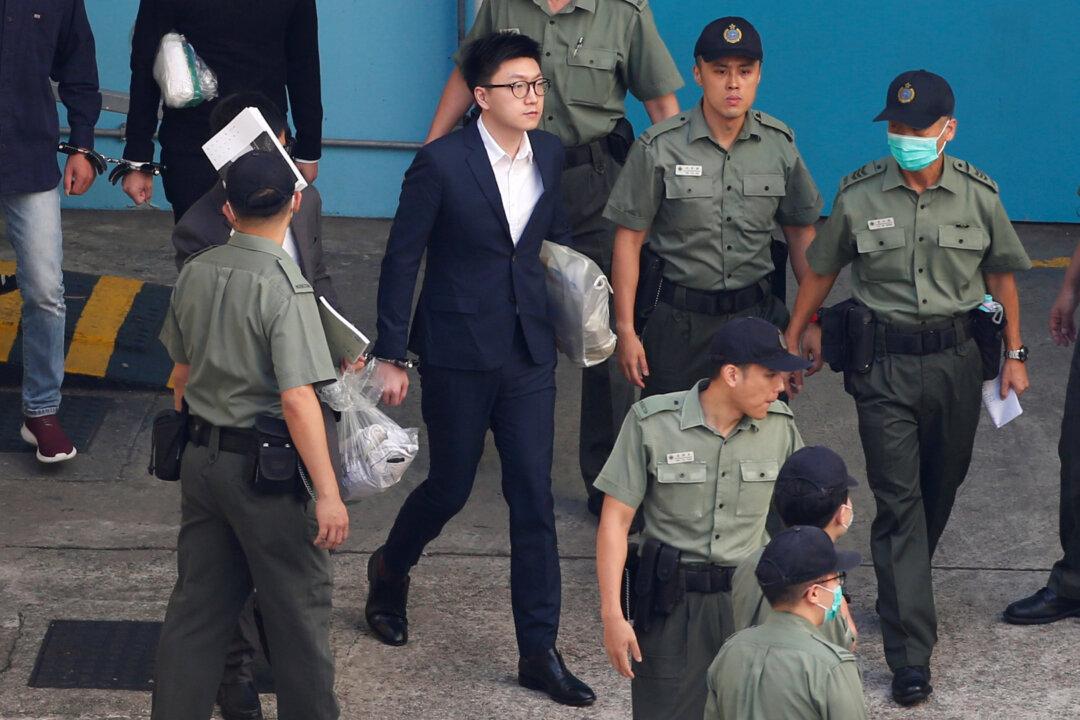HONG KONG—Three protesters from Hong Kong’s youth opposition were jailed on June 11 for taking part in a 2016 protest that turned violent, receiving one of the harshest sentences handed down to democracy activists since the city was returned to Chinese rule in 1997.
Edward Leung, 27, one of the leaders of a movement advocating Hong Kong’s independence from China, was sentenced to six years for rioting and assaulting police. He was found guilty of rioting by a jury and had pleaded guilty to assaulting a police officer.





